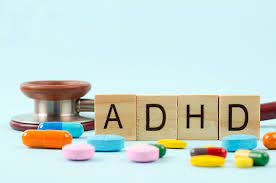
Attention Deficit Hyperactivity Disorder (ADHD) is a complex neurological condition that impacts both children and adults across the globe. Marked by patterns of inattention, hyperactivity, and impulsivity, ADHD can disrupt everyday life, from school and work performance to personal relationships. Fortunately, treatment options have significantly advanced, particularly in the realm of medication. In this article, we’ll dive into the types of ADHD medications available, how treatment approaches are evolving, and how providers are personalizing care to better meet patient needs.
Medications and Their Role in ADHD Treatment
While behavioral strategies and lifestyle adjustments are essential in managing ADHD, medication often plays a central role in symptom control. The most widely used drugs fall under the stimulant category, including methylphenidate-based medications like Ritalin and Concerta, and amphetamine-based options such as Adderall and Vyvanse. These medications help regulate brain chemicals—mainly dopamine and norepinephrine—that influence attention, motivation, and behavior control.
Despite their effectiveness, stimulants can come with side effects like appetite suppression, insomnia, elevated heart rate, and mood changes. Because of this, healthcare professionals are becoming more intentional about treatment plans, including exploring non-stimulant alternatives when necessary.
Non-Stimulant Options: Expanding the Toolbox
For individuals who don’t respond well to stimulants or experience unwanted side effects, non-stimulant medications offer valuable alternatives. Approved by the FDA for ADHD treatment, drugs like atomoxetine (Strattera) and guanfacine (Intuniv) provide effective symptom relief with a lower risk of abuse.
Atomoxetine targets norepinephrine in the brain and is effective for both adults and children. Guanfacine, originally used for high blood pressure, is now used to reduce impulsivity and hyperactivity, especially in younger patients. Although these medications may take longer to produce noticeable effects, they offer a steadier option for long-term management.
In some cases, healthcare providers may even recommend combining stimulant and non-stimulant therapies to address specific symptoms and improve outcomes.
Personalized ADHD Treatment: One Size Doesn’t Fit All
Treatment for ADHD is no longer limited to a trial-and-error approach. With new tools like pharmacogenetic testing, clinicians can better understand how a patient’s genes may influence their reaction to specific medications. This insight helps tailor prescriptions to the individual, reducing the risk of side effects and increasing effectiveness from the start.
Another essential part of customized ADHD care is recognizing coexisting conditions, such as anxiety, depression, or learning disorders. These overlapping challenges often require integrated treatment strategies, leading to more effective symptom management and improved quality of life.
ADHD Medication in Children: Finding the Right Balance
When treating children, physicians and parents must strike a careful balance. Concerns about how medication might affect development are common, but untreated ADHD can also have long-term consequences, including poor academic performance, behavioral issues, and low self-confidence.
Modern ADHD treatment for children often includes extended-release medications, which help maintain consistent symptom control throughout the day. Brands like Concerta, Vyvanse, and Daytrana offer longer-lasting effects, helping reduce the need for multiple daily doses and minimizing emotional fluctuations.
Still, medication is just one part of the equation. Parents should focus on their child’s overall well-being—nutrition, physical activity, sleep, and emotional health all play important roles. And because ADHD medications can cause oral side effects like dry mouth or teeth grinding, regular dental check-ups are highly recommended.
For families seeking professional support in managing these side effects, consulting a Bel Air MD dentist can be an essential step in safeguarding a child’s long-term health.
Team-Based Care: A Collaborative Approach to ADHD
ADHD treatment works best when it involves a multidisciplinary team. Pediatricians, psychologists, psychiatrists, educators, and even dental professionals each play a part in delivering well-rounded care. This collaborative model ensures that all aspects of a patient’s physical and mental health are addressed.
Teachers and school counselors can provide vital feedback on a student’s academic and social development, helping tailor interventions that extend beyond the doctor’s office. Likewise, regular communication between caregivers and providers helps track progress and make adjustments as needed.
Looking Ahead: Innovations in ADHD Medication
The future of ADHD treatment is promising. Researchers are developing next-generation medications that offer improved efficacy, fewer side effects, and longer-lasting benefits. At the same time, the integration of digital health tools, including mobile apps and wearable trackers, is transforming how patients monitor and manage symptoms in real-time.
These innovations support a more responsive treatment process, helping patients avoid prolonged periods of trial and error, and enabling healthcare providers to make data-informed decisions quickly.
Final Thoughts
ADHD medication is not a one-size-fits-all solution—it’s part of a broader, evolving strategy to help individuals manage symptoms and live fulfilling lives. With the growing emphasis on personalized medicine, non-stimulant alternatives, and multidisciplinary care, the future looks bright for those navigating ADHD.
As always, a comprehensive approach that considers the whole person—mind, body, and even oral health—is the most effective path forward. Partnering with healthcare professionals, including a trusted Bel Air MD dentist, can help manage potential side effects and promote overall wellness throughout ADHD treatment.